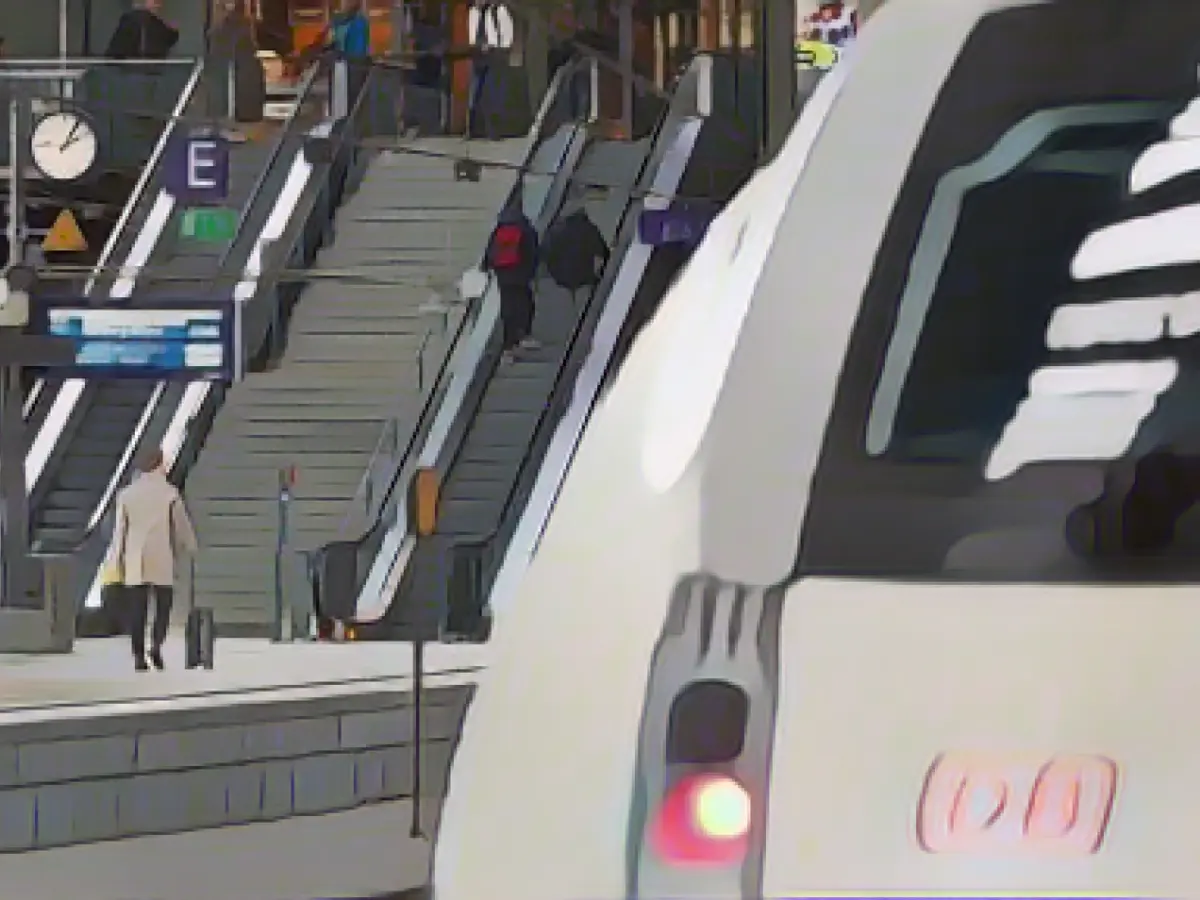Rail traffic - Train driver warning strike: Cancellations in Berlin and Brandenburg
The warning strike by the German Train Drivers' Union (GDL) in nationwide rail traffic is also affecting passengers in Berlin and Brandenburg. Both the Berlin S-Bahn and regional rail services are expecting considerable restrictions, as announced by Deutsche Bahn on Thursday.
"From 10 p.m. and tomorrow Friday, there will only be a few journeys on DB's regional services," it said. In some cases, Deutsche Bahn will also be using buses to provide passengers with an emergency timetable. This is the case on the S-Bahn lines S25 North (Hennigsdorf-Tegel) and S25 South (Teltow Stadt-Lichterfelde Ost).
Even before the warning strike begins, there will be cancellations, the railroad announced. On four S-Bahn lines, however, trains will be running every 20 minutes on Friday, mainly to connect outlying districts with Berlin city center. These are the S3 (Erkner-Ostbahnhof), the S46 (Königs Wusterhausen-Schöneberg), S5 (Strausberg Nord-Ostbahnhof) and the S9 (Friedrichstraße-Flughafen BER T1-2).
Like the federally-owned Deutsche Bahn, the Ostdeutsche Eisenbahngesellschaft (Odeg) also fears restrictions in service. All 15 Odeg lines are to run. However, increased capacity utilization and cancellations are likely. Although Odeg is not directly on strike, it uses the Deutsche Bahn rail network. The GDL has also called train dispatchers to the warning strike, who coordinate rail traffic on the network.
Berlin's public transport operator BVG is not affected by the announced warning strikes. Buses, underground trains and streetcars will continue to run on all lines, according to a spokesperson. However, passengers should be prepared for fuller vehicles and longer waiting times. If many commuters switch to their cars on Friday, there is also a risk of traffic jams.
The GDL strike will begin on Thursday at 10 p.m. for passenger transport and at 6 p.m. for freight transport. The union has announced that it will end at 10 p.m. on Friday. Especially on Friday morning and evening, it is likely to be difficult for commuters and schoolchildren to get to and from work. The S-Bahn called on passengers to use alternative means of transport during the warning strike.
Alexander Schirp, Managing Director of the Berlin-Brandenburg business associations, criticized that the warning strike was affecting hundreds of thousands of commuters and travellers without need. "For companies in the capital region, this is causing millions in damage."
With this action, the GDL wants to increase the pressure in the current collective bargaining round with Deutsche Bahn. It last struck on November 15 and 16. During this 20-hour work stoppage, a good 80 percent of the scheduled long-distance journeys were canceled. The impact on regional transport was even greater in some federal states. After the warning strike this Thursday and Friday, the GDL has stated that it will not strike again until January 7.
Read also:
- A clan member is punished here
- Will he be convicted as Jutta's murderer after 37 years?
- He also wanted to kill his cousin
- With live stream! Gawkers film dying man
- Despite the German Train Drivers' Union (GDL) announcing a nationwide strike, the Ostdeutsche Eisenbahngesellschaft (Odeg) anticipates potential restrictions in service.
- In Erkner, the S3 (Erkner-Ostbahnhof) is among the S-Bahn lines expected to have trains running every 20 minutes on Friday, providing a connection to Berlin city center.
- Deutsche Bahn and other rail companies have issued warnings for passengers in Berlin and Brandenburg, warning of substantial cancellations in both S-Bahn and regional rail services due to the GDL strike.
- The S25 North (Hennigsdorf-Tegel) and S25 South (Teltow Stadt-Lichterfelde Ost) S-Bahn lines will see Deutsche Bahn using buses to provide an emergency timetable during the strike.
- Commuters in Berlin and Brandenburg should expect difficulties in getting to and from work on Thursday and Friday morning and evening, as the GDL strike is likely to cause significant disruptions in rail traffic.
- The GDL strike is affecting hundreds of thousands of commuters and travelers in the capital region, causing damages worth millions for local businesses, according to Alexander Schirp, Managing Director of the Berlin-Brandenburg business associations.
- The Union of German Locomotive Drivers (GDL) is calling for a warning strike, aiming to increase the pressure on Deutsche Bahn in the current collective bargaining round.
- Tariffs and working conditions are at the heart of the GDL's demands, as the union seeks to improve the working situation and wages for its train driver members.
- If many commuters choose to switch to their cars during the strike, traffic jams could pose a further challenge to the already strained S-Bahn and rail traffic in Berlin and Brandenburg.
Source: www.stern.de








